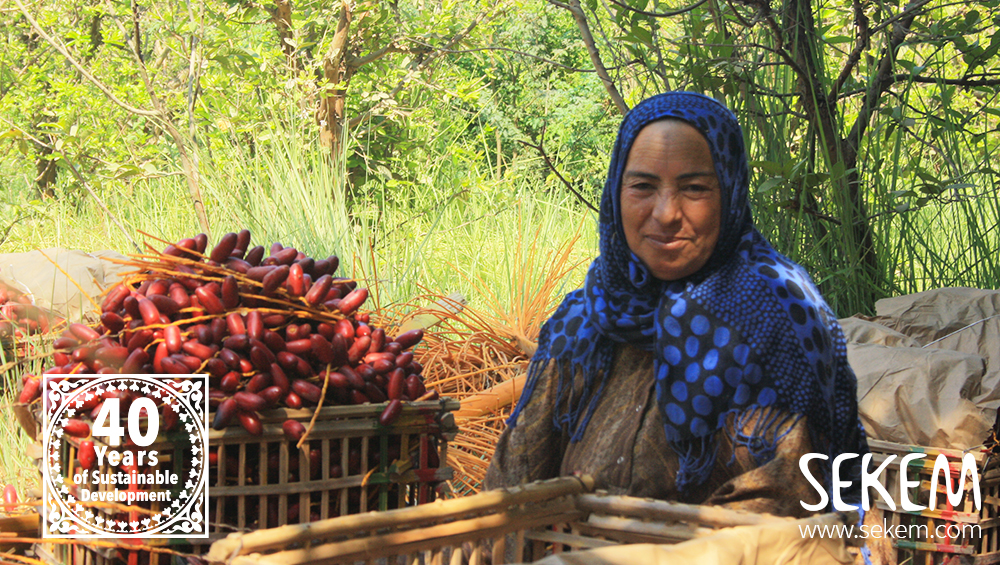Ramadan is a magical month – the ninth month in the Islamic calendar. The fasting in this month is one of the five pillars of Islam. During Ramadan Muslims are supposed to fast and are instructed to refrain from sinful behavior. The fasting month is accompanied by mysterious customs. In Egypt, for example, shiny decoration and colorful Ramadan lanterns are displayed, and guns fired before and after the fast.
There are different specialties from region to region for the fasting at sunset, Iftar. Almost all Muslims around the world are breaking the fast with a couple dates together with a glass of water or milk – following the example of the Prophet Mohammed, who had already done so.
Treats as an all-rounder
Why else? The small sweet bites are part of a tradition, known as a good deed and all-rounder: they are not only healthy, but also give the body lots of energy after a long day of fasting. The blessed fruit is rich in fiber and quickly replenishes the exhausted sugar content of the fasting. In addition, they have a high content of B-vitamins, calcium, phosphorus, iron, magnesium, zinc and copper.
Dates also have become indispensable in SEKEM. For more than 30 years, SEKEM has been manufacturing and selling the natural candy – about 800 tons annually. The majority comes from SEKEMs contracted farmers and from SEKEMs farm in the Al-Bahariyya oasis, which is located in the western desert of Egypt and popular for its dates. All SEKEM dates are Biodynamically certified. SEKEM offers them either for the local market or for export – SEKEMs long-standing Organic partner Davert is processing them to date confectionery, for example.
The oldest man-grown plant
The SEKEM dates are particularly popular when they are filled with peanuts or almonds and served on a handmade plate of palm leaves in the supermarket shelves. According to archaeological findings, the desert plant, also known as the “bread of the desert”, is the oldest human cultivated plant.
For Iftar, many fasting people also put the dates into milk and spoon them both together as a soup. Although dates are not a basic food in Europe, they are reminiscent of the prophetic way of life. They are mentioned not only in the Koran, but also in the Bible several times. The Christian tradition sees it as a tree of life and a symbol of resurrection.
Together, less alone
In addition to Ramadan, charity is another important pillar of Islam, and is also of great importance during Ramadan. For the Iftar, Muslims like to invite family and friends to break the fast together. Since Ramadan is not only a time of charity, but also of spirituality, and changes the wake-sleep phases as a result of the meals shift, SEKEM adapts the working hours for its employees every year during Ramadan.
Christina Büns
Bread of the Desert: Dates from Egypt
Get to know SEKEMs Dates Products
Learn about another crop which SEKEM cultivates: Organic Cotton

